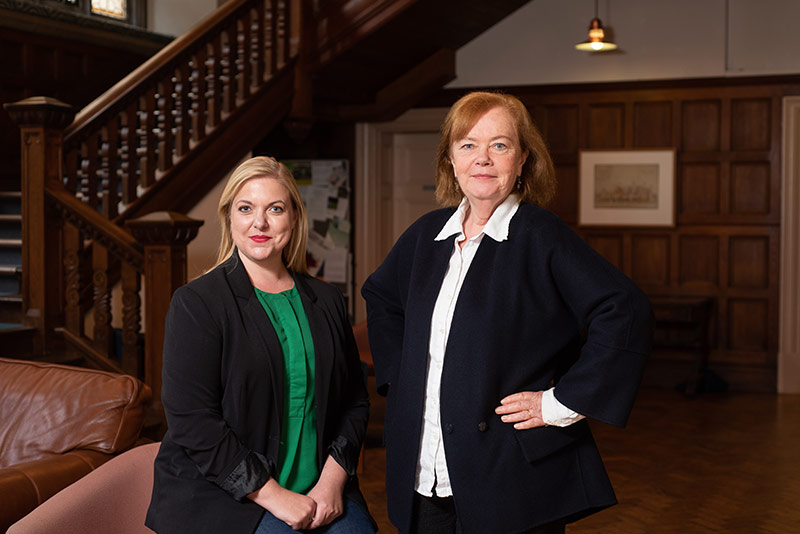Improving young lives around the world
An international study into child poverty is improving the circumstances of young people facing disadvantage and inequality.
Young Lives is an international study set up to shed light on the drivers and impacts of child poverty, using the evidence generated to inform policy and make a real difference to the lives of poor children and their families.
Launched in 2001, the study follows the lives of 12,000 children in India, Ethiopia, Peru and Vietnam. There are two cohorts, one consisting of children born in 2001 and the other of children born in 1994, with equal numbers of boys and girls from diverse locations and social groups – some urban, some rural, and with different ethnic statuses and languages. Professor Jo Boyden, Director of Young Lives, says: ‘This means that we can compare the same children at different ages to see how their lives are changing, as well as different children at the same age, to see how their communities have changed over time.’
Coordinated by the University’s Department of International Development, Young Lives is made up of 13 institutions in the four selected countries. Professor Boyden stresses the significance of this approach: ‘This is not about Oxford having all the expertise and knowledge. This is about expertise coming from all over.’
The study has attracted more than £30 million from a wide range of donors over the last 15 years. Funding from the government’s Department for International Development, which initiated the project, ceased in 2018. ‘The fact that we are still doing research is almost entirely down to philanthropy,’ says Professor Boyden. ‘What’s important to donors is knowing that our research is going to make a difference on the ground.’
‘Philanthropy has made the whole much bigger than the sum of its parts’
One of the most exciting things, she says, is the personal interest that donors bring to the table, and the two-way dialogue that results: ‘We push their boundaries. For example, the Old Dart Foundation had been mostly funding orphanages for abandoned or orphaned children in Peru. We demonstrated that they could have more impact at a national level by allowing the research evidence to speak to government policies and to the wider public.
‘We have also done a lot of research with the support of the Oak Foundation. Initially, there was an assumption that all work done by children is bad for them. Some of it is horrendous, but some aspects of schooling are pretty awful as well. The work that children do can actually be really beneficial, both for them and their families. We are able to show the nuances.’
 Professor Jo Boyden (right) with Senior Education Researcher Dr Rachel Outhred. Photo by John Cairns
Professor Jo Boyden (right) with Senior Education Researcher Dr Rachel Outhred. Photo by John Cairns
The upshot of these collaborative efforts is tangible influence on policy. ‘We used our data on corporal punishment and bullying in schools in Peru to lobby the government in conjunction with Unicef and the University of Edinburgh, leading to a law banning corporal punishment in schools,’ says Professor Boyden. ‘And with funds from the Children’s Investment Fund Foundation we did research on sexual and reproductive health, early marriage and parenting in India. Collaboration with the National Commission for Protection of Child Rights then led to a landmark Indian supreme court judgement in October 2017, which means that sex within marriage with an underage child actually amounts to rape. This is a really important step.’
Informing policy is also the goal of a current 18-month project on gender-based educational disadvantage, funded by Echidna Giving. Senior Education Researcher Dr Rachel Outhred says: ‘Without this programme, there would simply not be the opportunity to build the evidence base around how gender plays out to advantage or disadvantage different groups and the policy implications for that. Echidna Giving believes that improving educational opportunities and outcomes for girls is better for all of us, creating a better future for men, women, children and the next generation. We have the opportunity and the data to explore, over a period of time, exactly how that happens.’
‘We can never look at gender in isolation because it is obviously never experienced in isolation. The disadvantage is compounded when experienced with economic disadvantage, for example’
Professor Boyden is also keen to mention ‘an incredibly helpful and completely different kind of grant’ from the Hewlett Foundation, which has helped the team to put in place a sustainable organisational structure and approach to fundraising and future research.
In fact, Professor Boyden has a lot to say about the future, even though she is on the cusp of retirement: ‘We want to do two more survey rounds. We want to see how those very early circumstances shape the young people’s outcomes in adulthood.’
Reflecting on the project’s goals, she adds: ‘We have actually become a study in child inequality, in itself a source of great misery and suffering in terms of nutrition and health, but also in terms of having a sense of self-efficacy, self-esteem, the ability to act on your life. You see growing disparities. It’s a global challenge – it’s happening all over the world.’
Young Lives is currently fundraising to continue the study to 2026.
GIVE TO SOCIAL SCIENCES